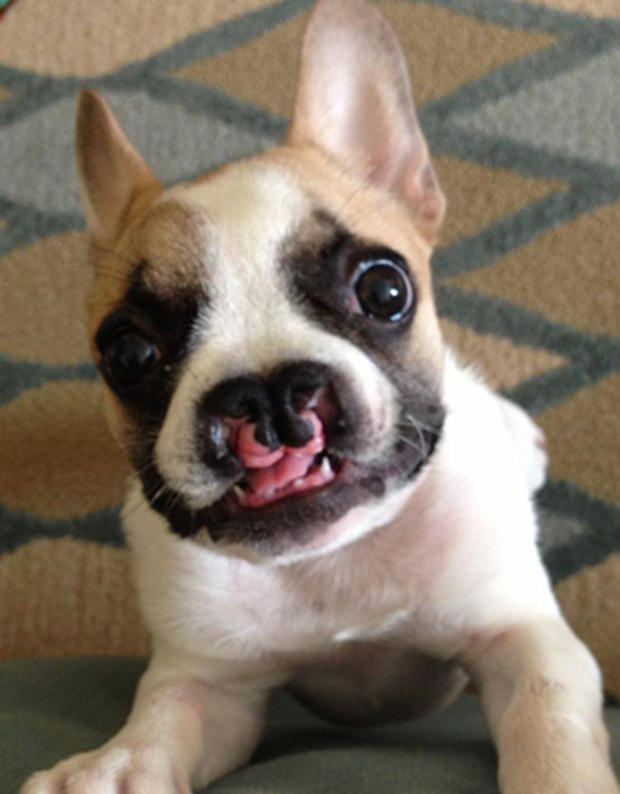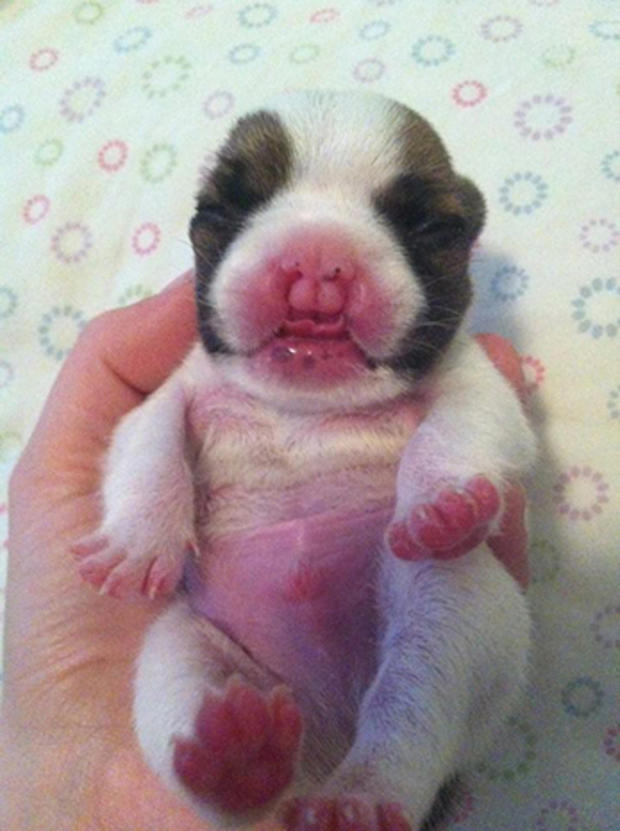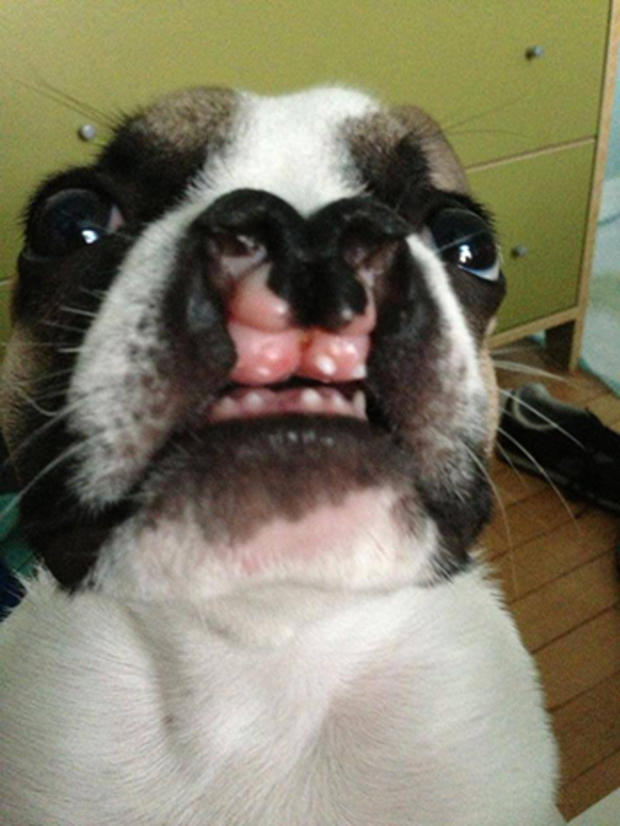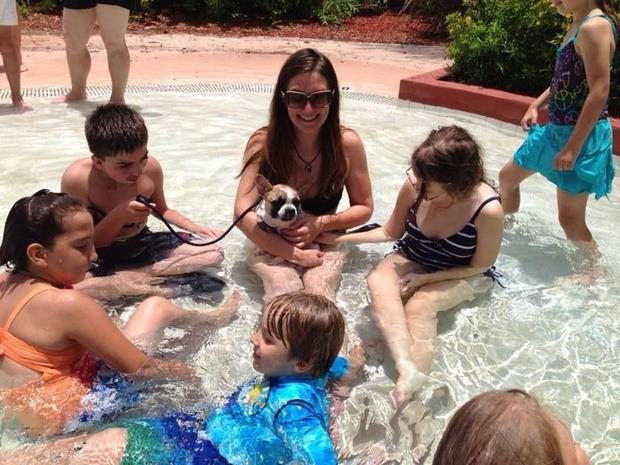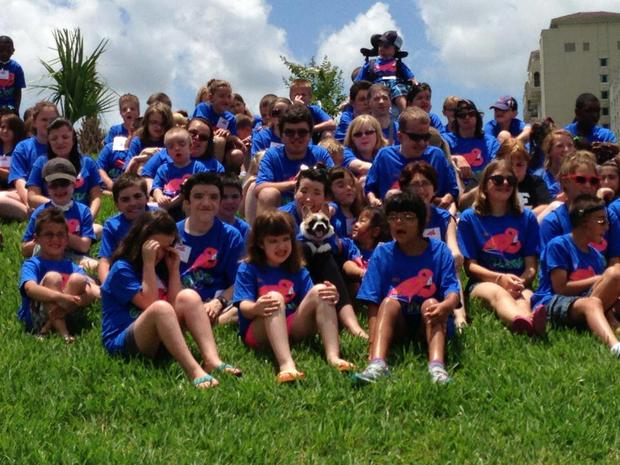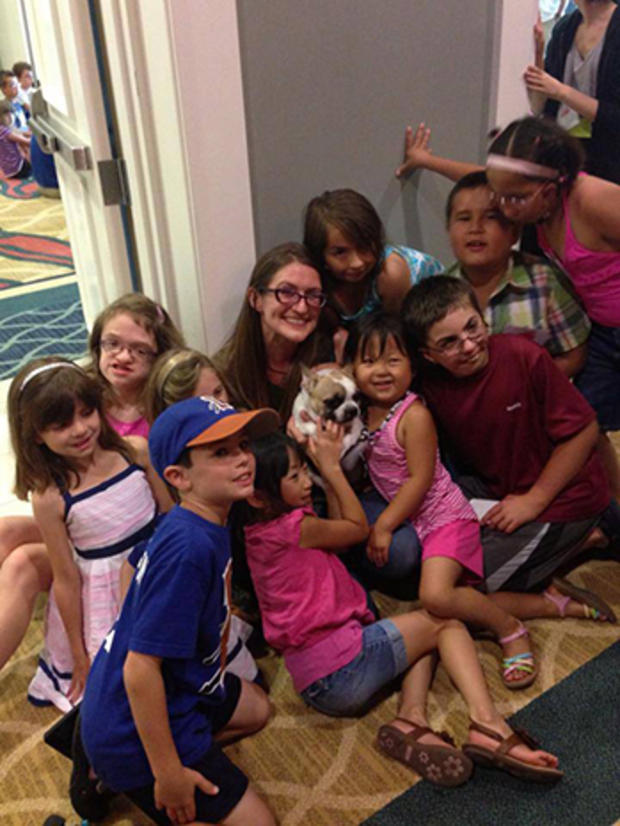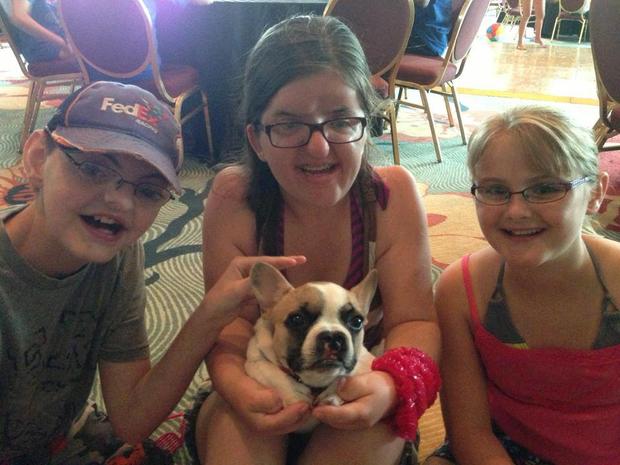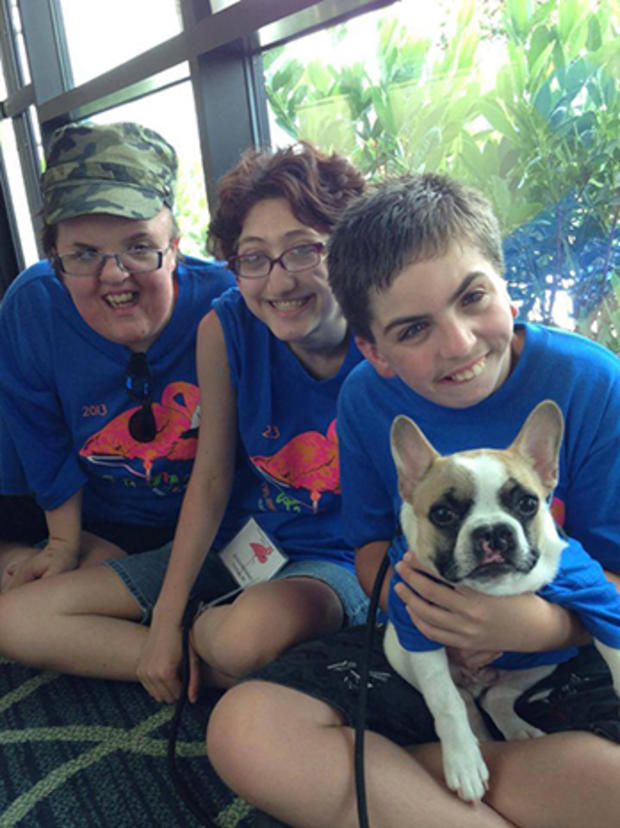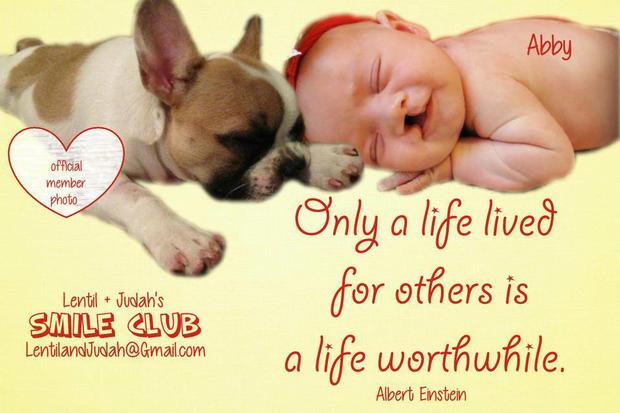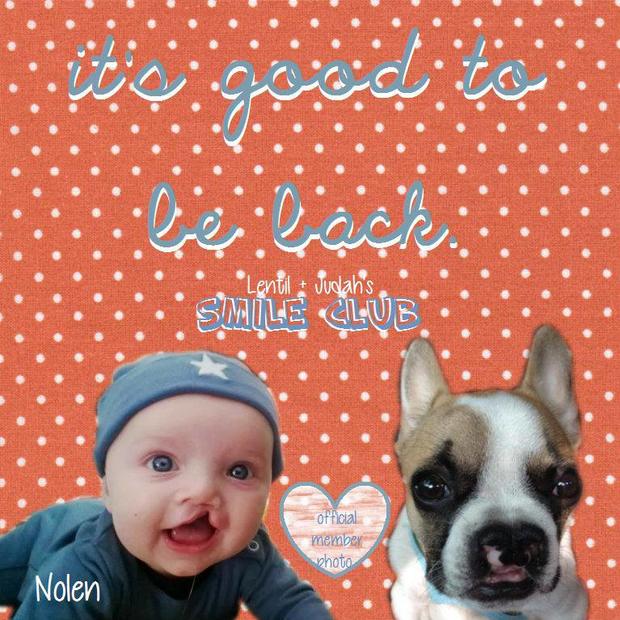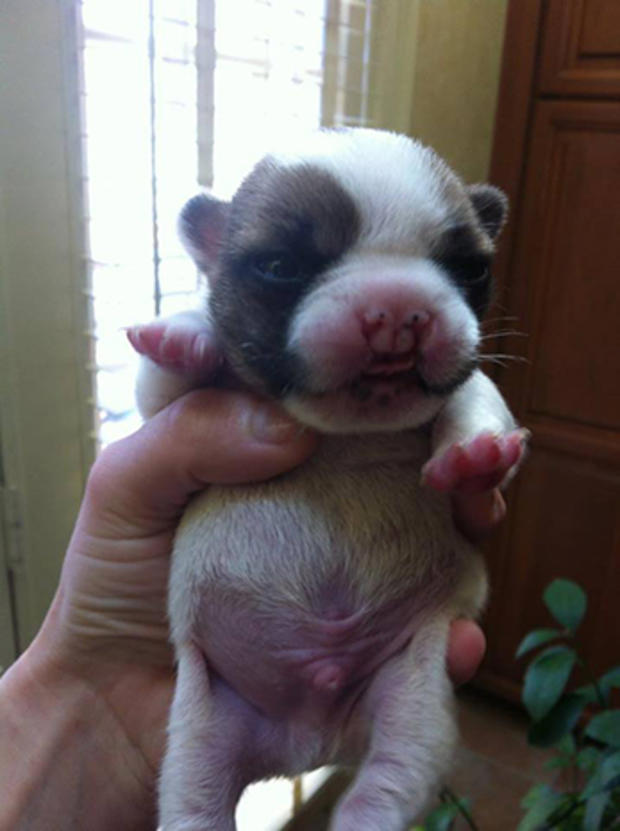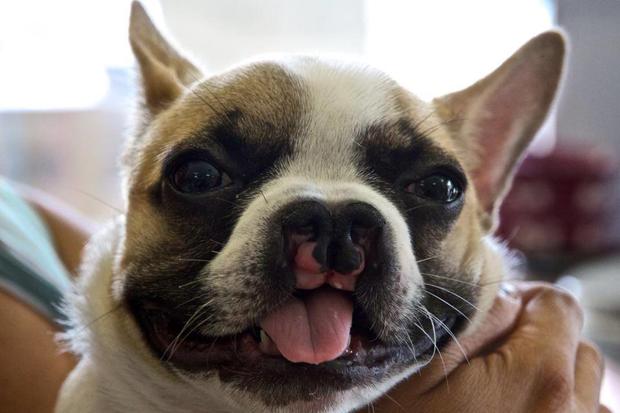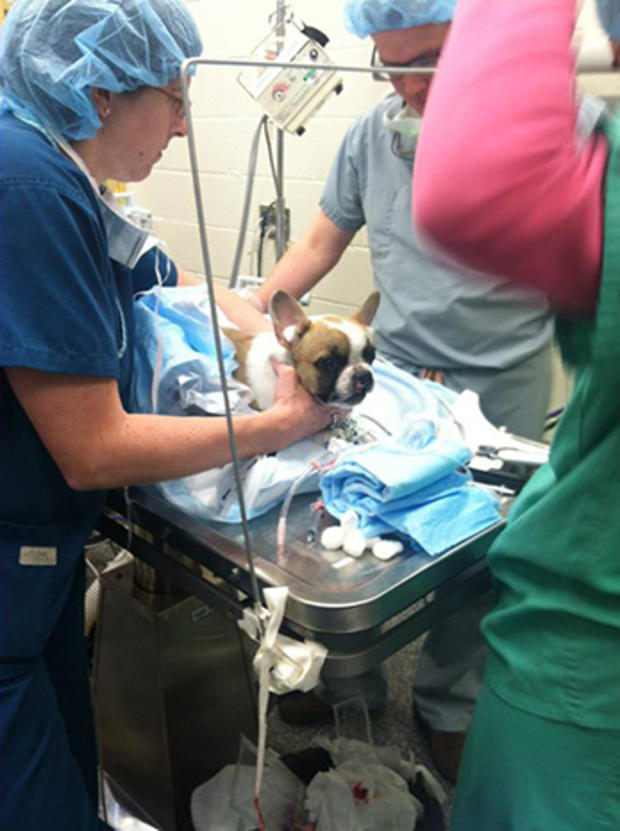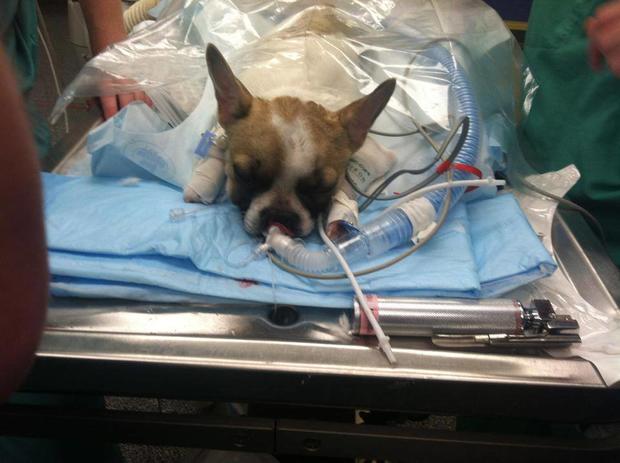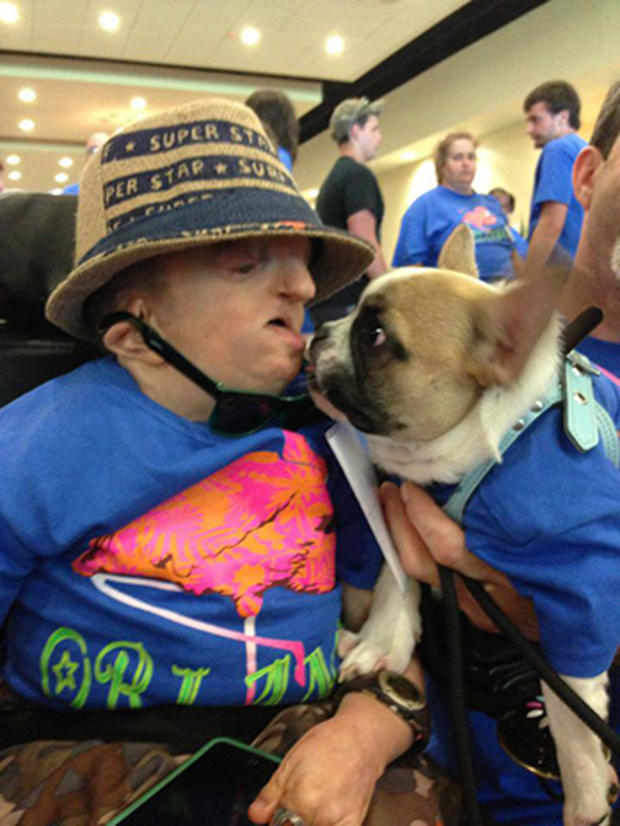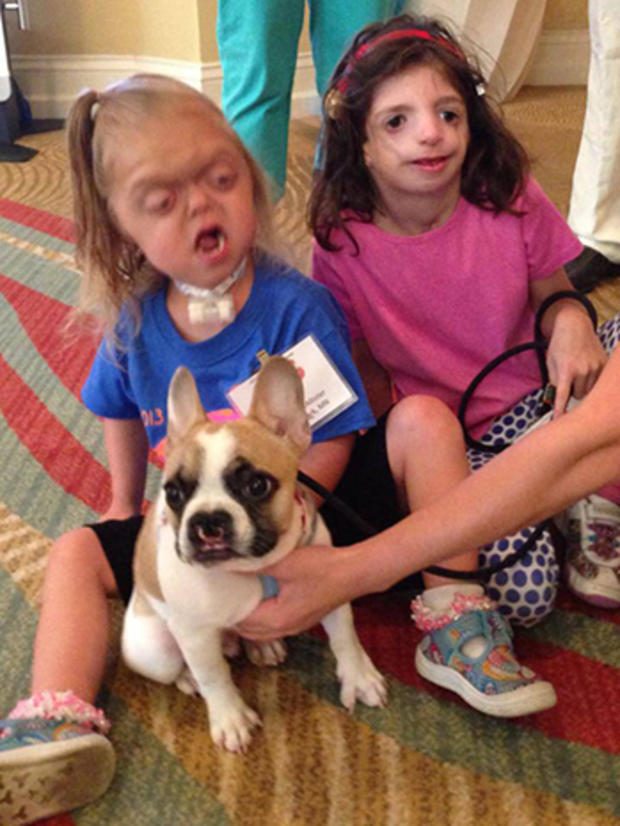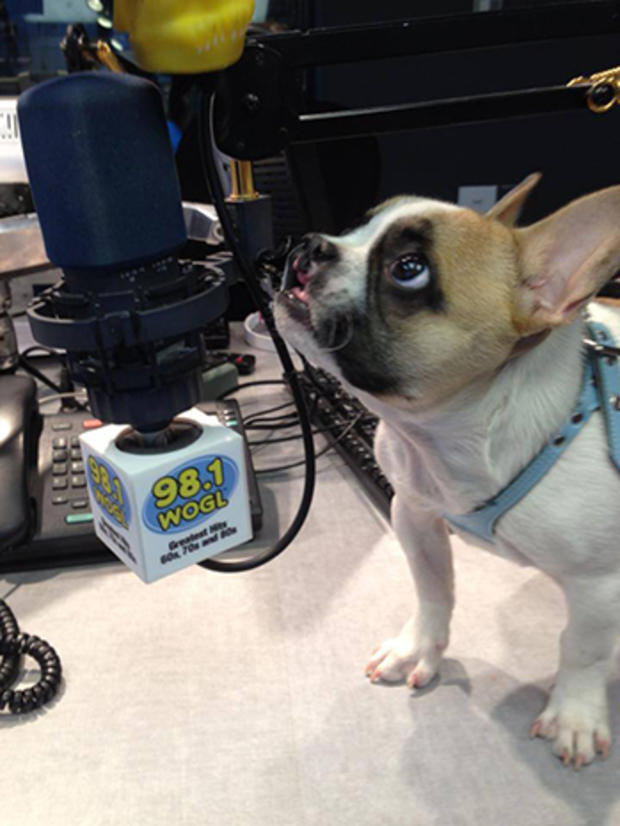French bulldog Lentil helps kids with facial deformities
Lentil now works as an "ambassadog," helping adults and children with cranial and facial deformities.
"Many people assume this is a breed issue. While it is true we see broad-faced and short-faced dogs, they can occur in any breed. It's not necessarily a genetic issue," Dr. Alexander Reiter, the chief of the dentistry and oral surgery service at the University of Pennsylvania School of Veterinary Medicine, told CBSNews.com.
The hard palate cleft was the most concerning for doctors because it could potentially cause life-threatening injuries.
Because his hard palate was open, Lentil's nasal passageways were susceptible to infection. Food and liquid could easily go down the his windpipe and not his esophagus, which could cause him to choke to death.
Lentil had to be tube-fed every three hours in order to make sure the pup got the right nutrients.
